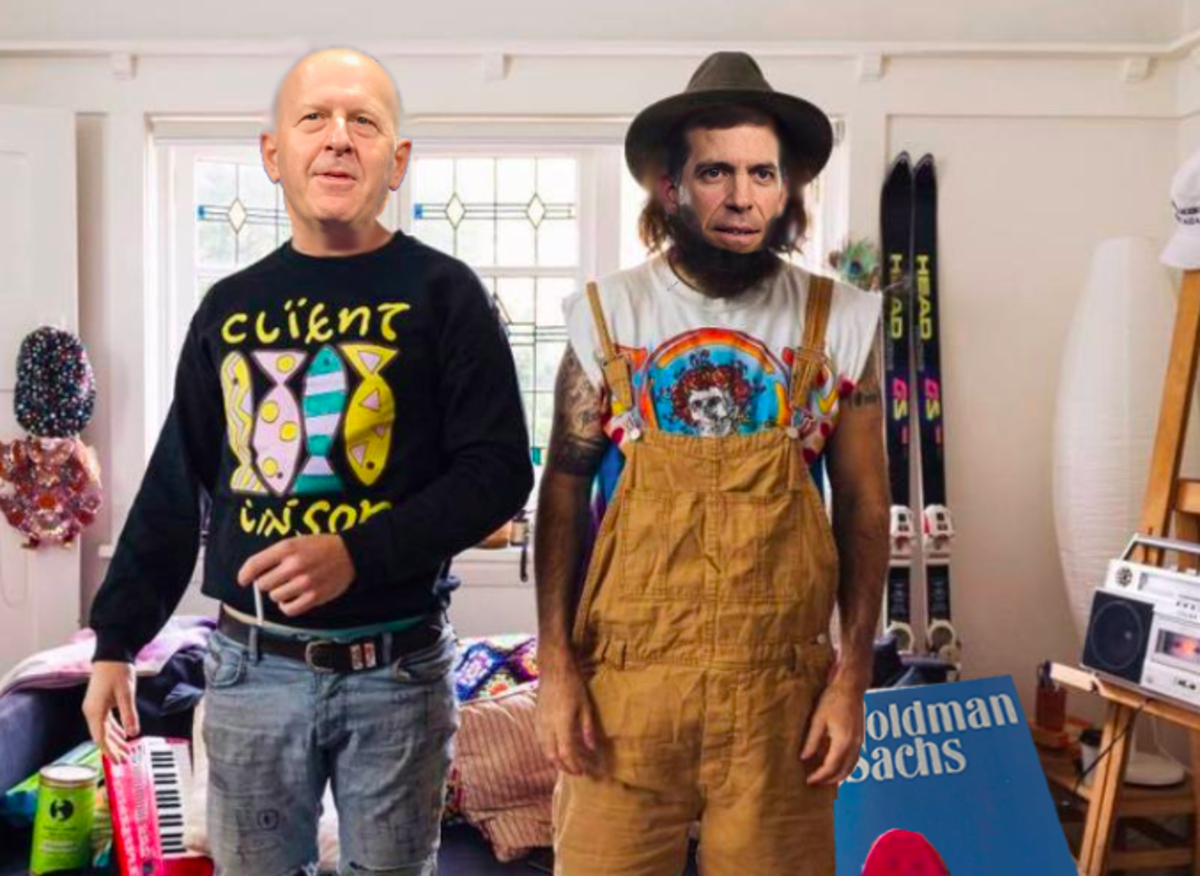Just a short two months ago, I was a virtual venue virgin. What I mean is that despite the world moving online in the wake of the pandemic, I had yet to attend an event remotely. As someone who has always enjoyed conferences as much for the IRL connection as for the content, I wondered whether an online event could be worth the time and expense.
Yet at the same time, the siren’s song of the virtual conferences throughout the legal profession tantalized me. Rocket Matter’s Rocket-Aid was first out of the gate back in April: a two day charitable, CLE-eligible event on law practice management event that drew several hundred attorneys and raised several thousand dollars for legal aid organizations. Also around that time, Mike Whelan’s virtual Lawyer Forward marched forward with an online event on innovation in law with a pay-as-much-as-you-wish business model. And finally, NextChapterBK’s Bankruptcy Week Summit which attracted 3300 attendees and was pulled together in a record three week’s time according to Janine Sickmeyer’s how-to guide on reimagining the typical virtual conference.
These success stories made a virtual conference organization seem cheap and easy – which made me think that I could put on an event on my own. But without an idea for a conference, I tabled the thought.
But the pandemic lingered, and more conferences began announcing virtual dates, I noticed, somewhat disappointingly, that the online events just transplanted real life events online instead of replacing something former with something better. Moreover, much of the content hadn’t been modified to address new COVID-related concerns like added stress of balancing work and school – particularly for moms – or a newfound desire for more meaningful work. Plus, even at a time of heightened awareness on diversity, most panels still featured largely white faces. So suddenly, the idea for a conference emerged – an event that would focus on lawyers who are moms who run law firms. Once I’d come up with an idea, here are the steps that I took to make it a reality:
- Be Aggressive – Keeping in the tradition of the earlier virtual conferences I mentioned, I wanted to stick to an aggressive planning schedule to avoid losing interest.
2. Team Up – I knew that I’d need accountability to make the conference happen, plus I wanted a partner to bounce ideas off of. So I reached out to Jeena Belil, a lawyer who was running a Facebook group for lawyer moms who run firms and asked if she was interested. Once Jeena was on board with the concept some time during the second week of August, we spent a Zoom session brainstorming ideas for panels that both of us would want to attend. We chose a date for the conference at the end of September – too early to conflict with the slew on fall conferences on the horizon, but avoiding interference with Jewish holidays.

3. Be Unconventional – In planning the sessions, we wanted topics that simply weren’t available elsewhere but at the same time, wanted to ensure that the conference would provide practical advice. To this end, we balanced panels on pandemic law practice and marketing with more personal topics like balancing challenges, lawyers breaking barriers and career transition paths. To ensure a diversity of voices, rather than inviting one or two big name keynote speakers, we selected seven different women with various backgrounds, law practices and perspectives to share their personal journey of starting a law firm and advice for others. We knew that a virtual conference would allow us to draw on a wider range of speakers affordably.
4. Charge Something – I’ve offered my share of free events through this website, but a conference of this size was going to have to cost something. Ultimately, we settled on $39 – enough to cover what we expected to be basic costs, but also affordable so that we could attract larger numbers which was important to me. We hoped to make up the difference with sponsors as well. As I’ll discuss at the end, virtual conferences are cheap but they’re not free so you need to figure out a payment mechanism – whether it’s charging up front, or granting free admission but upselling other products or services at the event.
5. Leveraging the Benefits of a VIrtual Conference – Though a virtual conference loses out on personal interaction, it also creates opportunities for different types of interaction. For example, we identified Videosocials.netas a partner that could record 2-minute mini videos for attendees in groups of ten. By grouping attendees,they had a chance to network in small groups, plus they came away with a video short to use on their website.
6. Match Tools to Audience – We knew that our conference would be attended by busy moms so we had to think about ways to maximize engagement. One approach was to spread events throughout the day and into the evenings, figuring that participants would attend after the kids went to bed (spoiler alert: our top attendance was still during 9-5 hours). We also knew that attendees would want to connect with each other and speakers even after the conference ended – so we created an app for that. But the app came in handy in another, less expected but more useful way: it served as an easy way for attendees to view the conference directly from their phones.
7. Promoting the Event & the Downside of No Promote Policies – We started off with the ability to leverage my audience here at MyShingle. Because I’ve been blogging for almost 18 years, I have a decent following on social media and a healthy newsletter list which served as the jumping point for promotion. A couple of my colleagues also generously shared news of the event in their respective newsletters though it’s unclear how much traction that brought.
On the flip side, we also fell victim to the strict “no promote” policies of many Facebook groups, including those with audiences that might have been interested in the event. I realize that one value of Facebook groups is that the owners curate content so that members aren’t spammed. But on the flip side, banning news of all events irrespective of value isn’t helpful either and in some groups, we heard members lament that they hadn’t heard anything about our event. Still, the rise of Facebook groups has undoubtedly made conference promotion more difficult without a large email list or social media following – because many members rely on those groups as a principal source of curated content.
8. Finding Sponsors (or, the Chicken & the Egg) – Here, we were blessed with a handful of early sponsors who came on board no questions asked because they saw the value in our mission. That was important because starting out we didn’t have a huge number of registrants – certainly nothing close to the 1000 we aspired to.
9. Tech Tools – Though I’d always anticipated using Zoom to run the conference, with two weeks away, I hadn’t figured out any of the details of how to make it work. I reached out to Larry Port at Rocket Matter and Mike Whelan from Lawyer Forward who gave me a peak behind the scenes – though neither set-up was optimal. Ultimately, we went with creating a password protected page where users could connect directly to a Zoom webinar link, or they could watch directly from a link in the app (insert photo). Other tech we used included in addition to Zoom included:
Eventbrite – for ticket registration
Freshbooks – My law firm payment processor which I used to invoice sponsors since it was already set up and allowed the option of credit card or ACH Payments
Glideapps.com We used Glide Apps, a low-code tool to convert Google Sheets into an app format. Because we’d employed Eventbrite for registration, we needed to create a zapier connection to haul registrant names into a Google spreadsheet to power the app.
Facebook Live Though not really tech per se, we relied heavily on Facebook Live videos to promote the event.
Aweber and Mailchimp – I haven’t yet put a uniform, email campaign protocol in place so I maintain lists at Aweber and Mailchimp and used both to promote.
Beaver Builder on WordPress – Again, because I haven’t used an all-in one funnel for promoting events, it was quicker to set up or website, www.LawyerMomOwnerSummit.com using a Beaver Builder template for WordPress and hacking it into something presentable. I did some of the design (I always like to know enough about tech to be dangerous), with my assistant working through the knotty issues and doing the bulk of the execution.
10. Promo Details: I won’t lie, promoting the event was tough. All I can say is that consistency pays off. Between September 11 and the day before the conference, we did the following:
- Sent ten email dispatches :
Putting It All Out There
Don’t Be Your Own Glass Ceiling
Ticora, Ally, Niki & More -The Lawyer + Mom + Owner Virtual Summit
Do you feel invisible, but highly seen?
Change Won’t Happen If Women Remain Anonymous
When There Are Nine
The Stories We Tell
We Can’t Change the Past, But Lawyer+Mom+Owner Summit Can Change the Future.
Can Men Attend the LawyerMomOwnerSummit? Absolutely
Loser or Superstar? All Depends Upon How You Look at It.
- 18 Facebook Live events between August 28 and day before the event
- Multiple posting on Facebook, LinkedIn, Twitter and Instagram
- Outreach to law schools and bar associations to sell “batches” of tickets – which resulted in ZERO sales.
- A few Facebook ads and boosts
Ultimately, our promotions paid off with 340 attendees but the lesson here is that you need to be relentless in promoting paid events. In the end, we also snagged over a dozen sponsors.
11. The Bottom Line on Cost
Virtual events are cheap but they’re not free. Here are some of our costs:
Swag – even on a tight budget, we spent around $4500 on swag and anticipated another $1000 in mailing costs. But swag was important to our legitimacy;
Zoom – I invested in the Zoom webinar platform for a month which cost $560 for 500 attendees and 4 hosts
Graphics, social media and other support – We spent several thousand dollars on a graphic/social media rep and admin support that was self-funded through sponsorships.
App Development – $450
The remaining costs for web hosting, design, email campaign, additional admin and mailings came from my firm since I use these tools anyway and therefore they are sunk costs. We never did get to 1000 attendees, but we’re getting fantastic feedback and we’ve laid a great foundation for next year. In a future post, I’ll share where we think this initiative is headed. In the meantime, if your organization seeks to sponsor an online event, reach out to me – happy to share.
Share this:
Related




 Kathryn Rubino is a Senior Editor at Above the Law, and host of
Kathryn Rubino is a Senior Editor at Above the Law, and host of 




 Jamie Szal is an attorney at Brann & Isaacson, where her practice focuses on assisting businesses in all aspects of state and local tax controversy, from audits and administrative proceedings through civil litigation. Jamie actively volunteers with the alumni network and Women’s Leadership Council of her alma mater, Trinity College, as well as actively participates in
Jamie Szal is an attorney at Brann & Isaacson, where her practice focuses on assisting businesses in all aspects of state and local tax controversy, from audits and administrative proceedings through civil litigation. Jamie actively volunteers with the alumni network and Women’s Leadership Council of her alma mater, Trinity College, as well as actively participates in 






 Jill Switzer has been an active member of the State Bar of California for over 40 years. She remembers practicing law in a kinder, gentler time. She’s had a diverse legal career, including stints as a deputy district attorney, a solo practice, and several senior in-house gigs. She now mediates full-time, which gives her the opportunity to see dinosaurs, millennials, and those in-between interact — it’s not always civil. You can reach her by email at
Jill Switzer has been an active member of the State Bar of California for over 40 years. She remembers practicing law in a kinder, gentler time. She’s had a diverse legal career, including stints as a deputy district attorney, a solo practice, and several senior in-house gigs. She now mediates full-time, which gives her the opportunity to see dinosaurs, millennials, and those in-between interact — it’s not always civil. You can reach her by email at 